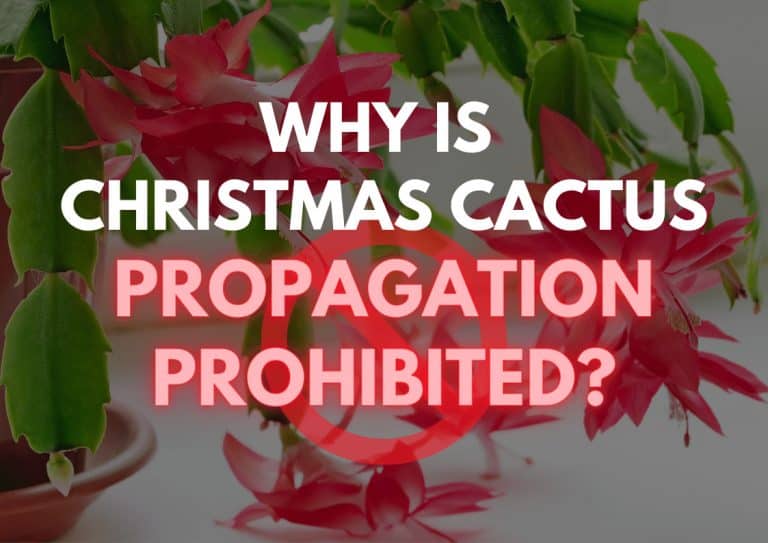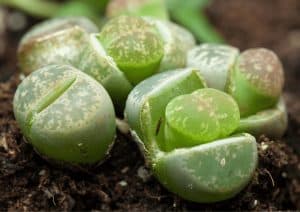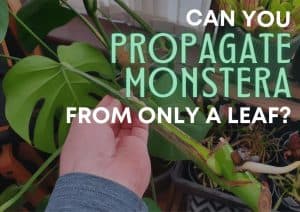Why Is Christmas Cactus Propagation Prohibited? (Illegal Plant Growing)
- Lakeisha Ethans
- December 17, 2022
If you buy something using the retail links in our articles, sometimes we earn a small affiliate commission. This does not impact the products we recommend.
If you’ve purchased a Christmas cactus and noticed a tag or sticker that states “propagation prohibited”, that means the variety you have in your hands is protected by a plant patent that prohibits consumers from cloning and reselling the plant for personal gain.
It costs commercial plant growers a lot of time and money to develop new cultivars and plant patents are a way of protecting their investment and preventing third parties from reaping reward without putting in any of the effort.
Laws protecting plant patents allow for propagation so long as the plants produced are not for sale. So it’s fine if you want to take cuttings to expand your own plant collection – you just cannot profit from the exercise.

How are Christmas cactus plant patents enforced?
Plant patents are granted by The United States Patent and Trademark Office (“USPTO”) at a cost of between $4,000 – $8,000 for a single plant and protect that cultivar from being copied, re-sold, or distributed. In essence giving the creators of that new variety a monopoly on its sales.
Like other types of patents it is the responsibility of the plant patent owner to identify cases of infringement and enforce patent infringement action in the form of a lawsuit.
Plant patents last for a period of 20 years and are not renewable at the end of this period. After the patent elapses anyone has the right to profit from the previously protected plant genome.

Lakeisha Ethans
Houseplant Writer
Mother to two humans and hundreds of plant babies. Lakeisha uses her 15 years of experience as a content writer to specialise in simplifying what you need to know to grow and care for all indoor plants.
Similar Posts
When Do Lithops Split? [Season + Timeline]
Lithops plants have to split to continue growing, but when does this split happen and what can you expect to occur when it does?
Can You Propagate Monstera From A Leaf Alone?
Is it possible to propagate an entire new Monstera plant from the leaf of an adult plant? Or does the cutting need to include another part of the plant to be successful?



